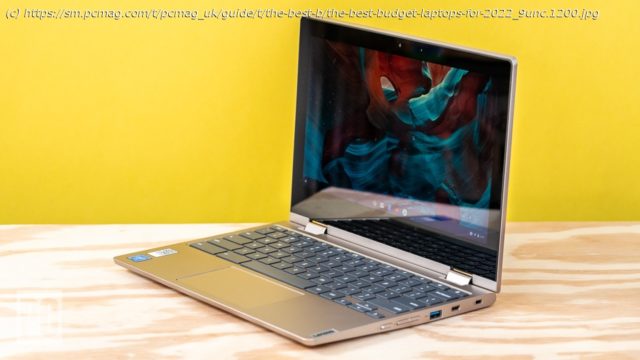These low-cost Windows laptops and Chromebooks make short work of everyday computing (and sometimes more), and many ring up for less than $500. See the best we’ve tested.
Apple won’t sell you a new MacBook for less than $899, but the days when you couldn’t get a decent laptop for under $1,000 are long gone. Today, it’s possible to pick up a full-size, ultraportable, or 2-in-1 convertible Windows 11 notebook—powerful enough for home, work, or school—for around $500. Some compacts and Chromebooks cost even less.
To be sure, you should be ready to compromise in one or two aspects. Economy models don’t have the latest and fastest processors or the most memory and storage, and you shouldn’t expect an ultra-colorful, super-high-resolution screen.
But that doesn’t mean they’re not capable productivity partners. Check out our top tested picks below—our favorite budget laptops from our recent reviews, broken out by usage case. Then, check out our buying-advice guide to learn what trade-offs to expect and how to match a budget notebook’s strengths and weaknesses with what you plan to do with it. Note: We’ve also broken out our current favorite picks in a detailed spec chart at the end of this article.
Ready to dive into the details around budget laptops? Today’s good news is that you’ll have to accept fewer compromises with budget laptops than you did in the past. Intel’s Celeron and Pentium processors (which power most of the under-$400 laptop set) have evolved to the point that they can support most of your web browsing and basic productivity needs without feeling sluggish. (That’s especially true with Chromebooks; more on them later.) That said, the $400-to-$700 Windows laptop market is mostly populated by systems based on the much peppier Intel Core i3 and Core i5 and AMD Ryzen 3 and Ryzen 5 families of processors. Opt for these CPU lines if you need more than just the basics. (See more about how to choose a laptop CPU.)
All of these CPUs also host the silicon that runs the laptop’s graphics. The newest integrated graphics solutions can hold their own in browser-based games and even some online games like World of Warcraft. The higher demands of AAA titles, though, still require a discrete GPU, which you won’t find in this price range. (If money is no object, check out our top-rated gaming laptops and ultraportables, as well as our favorite cheap gaming laptops.)
In years past, many of the barest-budget Windows laptops would come with just 2GB or 4GB of main system memory, but nowadays, at least in the Windows sphere, most come with 8GB. (A 4GB RAM count remains more common in Chromebooks and under-$300 Windows laptops.) In terms of batteries, an ideal budget laptop has one with six cells or more.






